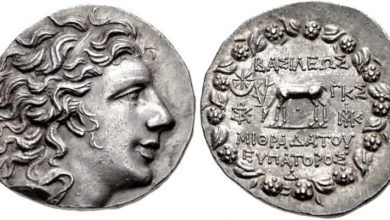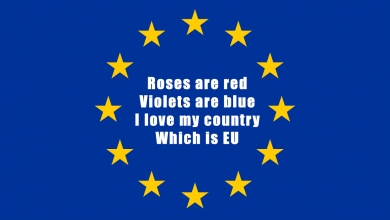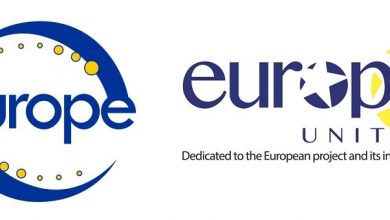The last weeks have seen Italy face an institutional crisis that is putting the whole country under pressure – and sending ripples of anxiety across the Eurozone as well. To make matters worse, reporting on the events that followed the general elections has been chaotic, sensationalistic and partisan, so this piece is an attempt at putting the issue in perspective and summarising the situation of the country in a way that makes it accessible to an international audience.
4th March: General Elections in Italy
The latest Italian general elections confirm the rupture of the country’s bipolar coalition system, a set up that emerged in the wake of the Mani Pulite (clean hands) scandal, which had decimated the Italian political environment in the 1990s. For the second time, the 5 Stars Movement comes out of the elections as a third pole, thanks to its non-conventional communication techniques and its post-ideological set up. With the centre-left coalition stuck in its internal struggles and a weakened Forza Italia party led by unelectable Berlusconi, the North League seems to be the only possible partner for the creation of a government. The Five Stars movement and the North League have many similarities: they are both ambiguously Eurosceptic, anti-system, and have been defined as populist parties.
While the North League has been in government before with Berlusconi, this could be the first time that they rise to government as a senior, rather than a junior partner. The party, once known for its radical xenophobia towards Southern Italians, has shifted its rhetoric to target foreigners and immigrants instead. The rise of former MEP Matteo Salvini as a leader of the party has led the North League to abandon economic liberalism and build an economic platform that winks to the Left, much in the style of Marine Le Pen’s Front National. The xenophobic roots of their ideology, however, are still strong.
The Five Stars were born as a protest movement and entered Parliament at the last elections in 2013, but never came to power. In fact, they stressed many times in the past that they would not form a coalition and would only accept governing alone, in order to revolutionise Italian political institutions. This seemed to be the only stable point of their policies, as their views on other topics changed unpredictably. Then their views on alliances changed as well, so it is a bit difficult to accurately describe the Five Stars in traditional terms.
The composition of the Parliament after the elections does not allow for a clear, autonomous majority of one coalition (see table below), leaving the country at the mercy of a hung parliament. This is neither exceptional nor unprecedented in Italian politics, as the set-up of the Constitution and Electoral laws is skewed towards the creation of coalitions and alliances, in order to prevent one single party from gaining enough power to govern unchecked. This is, of course, to prevent another totalitarian regime from rising to power after Fascism, but it has also created instability and doesn’t allow for long terms plans and policies, as Italian political parties are stuck in a permanent electoral campaign.
It is customary for the previous government, in this case led by Paolo Gentiloni, to remain in power ad interim until a new government can be formed. However, it holds limited power, as it is not an expression of the people’s will and has no political mandate, so it can exert his executive power only on ordinary affairs. For example, an ad interim government is not expected to pass the annual Budget Law.
| Chambers of Deputies composition [click here for details] | Senate composition [click here for details] |
 |
 |
24th March: Elections of Presidents of Parliament’s Chambers
Approximately 20 days after the elections, the Five Stars movement and the centre-right coalition finally reach an agreement to elect the two presidents of the Chambers of Deputies and Senate, as expected after an election. The president of a parliamentary chamber is an equivalent of the figure of a speaker in the anglosphere.
Roberto Fico, a member of the Five Stars movement, is elected as the president of the Chamber of Deputies. In the Senate, the appointee is Maria Elisabetta Alberti-Casellati, a member of Forza Italia and unyielding Berlusconi supporter. This agreement opens the door to further negotiations between the two blocs, whereas the relative majority party never demonstrated any interest in forming alliances in the past. The centre-left coalition remains excluded from any negotiations at this stage.

18th April: Casellati receives explorative mandate
A first attempt at forming a government is conducted by Casellati, who tries to broker an alliance between the Five Stars movement and the centre-right coalition, which includes the North League, Forza Italia, Brothers of Italy (inspired by the national anthem Fratelli d’Italia) and Us with Italy. The two entities have the largest number of members of Parliament and would be able to form a stable government.
While the Five Stars movement shows interest in an alliance with the North League only, and to a lesser extent with Brothers of Italy, Berlusconi and Giorgia Meloni (leader of Brothers of Italy) veto any collaboration. This is due to Berlusconi’s personal grudge against the Five Stars movement, which was born as a protest movement against him and later became a protest movement in general; but also because of Giorgia Meloni’s wish of creating a government that is unambiguously centre-right. The North League has to back down because of the strategic role of Forza Italia in many regional centre-right governments, as a disagreement at national level could cause a domino effect and make their shared regional governments unstable.
23rd April: Fico receives explorative mandate
After a first attempt at creating an alliance fails, Roberto Fico receives an explorative mandate to try and create a government ruled by the Five Stars and the centre-left coalition, which includes the Democratic Party, +Europa, Together (Insieme), and the centrists of Popular Civic List. This alliance would have had a narrow majority, thus being a less stable option than a coalition to the right.
Free and Equals, an umbrella organization for social democratic splinter parties (some of whom seceded from the Democratic Party) failed at gaining enough bargaining power to be relevant outside a coalition and fell silent after the elections. In fact, most of the bargaining power in the centre-left is held by the Democratic Party, although the party itself is still divided between two camps: a more leftist, traditionalist one, and Renzi’s supporters, who took over the party in the hopes of renovating its approach and policies towards a more moderate, centrist positioning.
Of course, this means that the proposition of an alliance is received in different ways, with Renzi’s supporters mobilized against it (#senzadime, which translates as #withoutme), and a more open-minded leftist wing of the party.
29th April: Renzi’s interview

During an interview on national television, Matteo Renzi expresses his personal opinion on an alliance with the Five Stars, by declaring that he opposes it. This is interpreted by Di Maio, leader of the Five Stars movement, as a signal that negotiations are over. For this reason, he shuts down any chance at reaching an agreement with the Democratic Party, judged too remissive towards its former leader.
9th May: Berlusconi backs down
Berlusconi opens up towards an alliance between the North League and the Five Stars movement by withdrawing his veto and allowing the beginning of a new round of negotiations between the two major parties. Forza Italia and the other parties of the centre-right coalition don’t take part in the attempt to form a majority.
There are a few causes of friction between the parties, the main ones being the name of a neutral Prime Minister Candidate, the list of Ministers, and the incorporation of the two programmes.
12th May: Berlusconi electable again
Milan’s court reverses the sentence which made Berlusconi unelectable because of his conviction for fiscal fraud. Berlusconi is still under investigation for the 1993 massacres committed by the mafia, and a sentence is pending for the “Ruby” case in which he is accused of exploitation of prostitution that involved an underage Egyptian girl. The public prosecutor also stated that he will appeal to a higher court for the fiscal fraud case. Nevertheless, Berlusconi for the moment can be elected in the next general elections and can become an active player in the negotiations.
“Plan B” is a detailed plan for exiting the Eurozone which, among other things, calls for secrecy and lack of transparency on the part of the government. As a matter of fact, it theorizes that if Italian citizens knew about Italexit, they would take their savings abroad to avoid devaluation, leaving the country’s financial system in disarray and causing an almost certain sovereign default. This means that the plan should be kept secret until the last minute, when all money transfers and withdrawals will be forcibly forbidden.
15th May: A draft of the agreement is leaked
Meanwhile, the Five Stars movement and the North League continue their negotiations. An early draft of the “government contract” between the two is leaked. The draft hints at a “plan B” to have Italy exit the Eurozone, and this is cause of concern for many, as this specific issue would cause repercussions on the whole Euro area. While the eurosceptic affiliation of both parties is well-known, the topic was not part of the electoral campaign, during which both parties held an unusually ambivalent attitude.
The part on Italexit is deleted and not included in the final version agreement.
23rd May: Conte receives mandate to form a government

Giuseppe Conte, a civil lawyer with no experience in politics or public service, receives mandate to form a government. His name is at the centre of a heated debate because the press investigates his curriculum vitae, only to discover that there is few evidence of many of his prestigious study experiences abroad. His name is also linked to the Stamina case, where he had a rather marginal role as lawyer of the family involved, who wished to continue treatment on their terminally ill daughter. Given the anti-vaxxer and anti-science stances of the Five Stars movement and the North League, and the fact that the issue is present in their agreement, this causes a fierce opposition from the centre-left.
The Spread BTP-Bund is the difference of interest yields between the 10-year Italian bond and the 10-year German bond. It is an indicator that measures the risk of investments in a country and its rise can mean that it will be more expensive to repay public debt. As a consequence, any attempt at investing in expansionary policies (deeply needed in countries like Italy) is hindered.
There is also perplexity on the name of the proposed Finances Minister. Salvini dictates the name of Paolo Savona, one of the authors of the “plan B” to Italexit. The news of a possible appointment of Savona as Finances Minister causes concern in Europe and this leads to a rise of the Spread BTP-Bund.
Sergio Mattarella, the Italian President of the Republic, refuses to support a government with Savona as Finances Minister, and proposes the name of Giancarlo Giorgetti instead. Giorgetti is a prominent member of the North League, with extensive knowledge of Italian budgetary matters and more of a political figure. It is not the first time that the President of the Republic suggests a different name for a minister, an occurrence generally dictated by incompatibility problems. It is still debated whether Mattarella’s refusal, while legally legitimate, is politically acceptable. Nevertheless it is a bold move and a rare occurrence in Italian political practice.
27th May: Conte renounces the mandate to form a government
Matteo Salvini pressures the appointed Prime Minister Conte, refusing to yield on the name of Savona as Finances Minister. This is unprecedented in Italian history, and causes Conte to renounce his mandate.
The President of the Republic Mattarella gives a speech in which he explains the reasons behind his refusal. According to him, nominating Savona would have put the savings of Italian citizens and families at risk. The President claims it’s his duty to protect them. As a matter of fact, the Italian Constitution does state that it is the duty of the Italian institutions to protect citizens’ savings, and since the role of the President of the Republic is to be the guarantor of constitutional values, his decision is coherent. President Mattarella has dedicated his life to studying, executing, and defending the Italian Constitution as a professor, as a Minister of the Republic, as an elected judge of the Constitutional Court and now as President of the Republic. During his speech, Mattarella also declares that he will make a decisions on the future steps on the following day.
Indictment is an act by the Parliament of Italy that allows to proceed against the President of the Republic in the case of high treason or attack on the Constitution. It is also an act that implies that the President of the Republic betrayed the trust of its citizens. The indictment procedure has never been brought to completion in the history of the Italian Republic.
The reactions by the main parties involved are immediate. Di Maio gives a speech that is live-streamed on Facebook from Fiumicino, where he is supposed to support the movement’s candidate to the city council. He strongly protests against Mattarella’s decision and argues that the President is responsible for destroying the work done during the negotiations. Salvini starts a live-stream from his phone, saying that he was ready to govern and that he is disappointed by Mattarella’s decision. Giorgia Meloni proposes the indictment of the President of the Republic.
In defense of the President, the Democratic Party launches a campaign #iostocolpresidente (translatable as #Istandwiththepresident), although it fails at providing a unified and strong response to the right’s accusations. Forza Italia announces that they would not support indictment against Mattarella, and the North League follows.
28th May: Cottarelli receives mandate to form a government
Carlo Cottarelli, a non affiliated public finances expert who represented Italy to the IMF, receives mandate from Mattarella to form a temporary government to lead Italy to the elections after the summer.
During an interview with a popular Italian tv show, Pomeriggio 5, the leader of the Five Stars Movement, Di Maio, says that they proposed alternative names to Savona but President Mattarella did not accept them. Soon after, a message from the President’s office denies Di Maio’s claims. The leader of the North League, Salvini, during the same tv show, says that he was not there, so he cannot confirm or deny Di Maio’s claims, implying that he’s lying.

Meanwhile, Forza Italia announces that they won’t support the Cottarelli government. The Democratic Party is split between Renzi’s supporters who agree with Forza Italia on not supporting Cottarelli, and others who offer support.
Berlusconi also opens up to the North League again, in view of the forthcoming elections. Salvini is open to this but seems reluctant to leave the newfound alliance with the Five Stars Movement, leading to speculations on a new coalition for the next elections. As a matter of fact, the Five Star and the North League hint at a big protest during the celebrations of the second of June, the Day of the Republic in Italy. The announcement of the protest comes after many social media commentators requested a march on Rome, a reference to Mussolini’s power grab in 1922.
29th May: Cottarelli working on a new government

Cottarelli continues his work on a new government, despite his chances of obtaining a majority in the Parliament being rather thin. Failure to get a majority vote would lead to a very short government ad interim with no political mandate.
Di Maio withdraws his threat of indictment to the President and offers a new attempt at creating a political government. Giorgia Meloni from Brothers of Italy opens up to the possibility of joining the alliance.
30th May: Di Maio attempts to gather support for a political government
Talks for the creation of a new government go on. Di Maio, Cottarelli and Matteo Salvini’s second in command, Giancarlo Giorgetti, are summoned by President Mattarella to reach an agreement on the new government.
Police forces are investigating at least three people for death threats and insults towards President Mattarella. Some of the threats referenced the death of the President’s brother, killed by the Mafia in 1980 during his mandate as President of Sicily. Death threats aside, insulting the President of the Republic is a crime punishable with a fine in Italy, since he represents all the Italian citizens and the Constitution, so he is a symbol of the country’s democratic institutions.
31 May: an agreement on the government is reached
An agreement to a political government guided by Giuseppe Conte is reached in the evening. The new government includes 18 ministers. They will swear an oath on the Constitution on the 1st of June and then they will have to secure the trust of the Parliament in a vote.
This is the list of the ministers:
- Prime Minister: Giuseppe Conte
- Minister of Internal Affairs: Matteo Salvini (deputy Prime Minister)
- Minister of Economic Development and Employment: Luigi Di Maio (deputy Prime Minister)
- Under secretary of the Prime Minister: Giancarlo Giorgetti
- Minister of Finances: Giovanni Tria
- Minister of Foreign Affairs: Enzo Moavero Milanesi
- Minister of Relationships with the Parliament: Riccardo Fraccaro
- Minister of European Affairs: Paolo Savona
- Minister of Defence: Elisabetta Trenta
- Minister of Justice: Alfonso Bonafede
- Minister of Public Services: Giulia Bongiorno
- Minister of Health: Giulia Grillo
- Minister of Regional Affairs: Erika Stefani
- Minister of the South Affairs: Barbara Lezzi
- Minister of the Environment policies: Sergio Costa
- Minister of Disability and Family policies: Lorenzo Fontana
- Minister of Agricultural and Tourism policies: Gian Marco Centinaio
- Minister of Transports and Infrastructures: Danilo Toninelli
- Minister of Education: Marco Bussetti
- Minister of Cultural Assets and Heritage: Alberto Bonisoli
This government is expression of the first purely anti-system coalition in Italy. Nevertheless, many appointed ministers are not part of the coalition. This is the case of the Minister of Foreign Affairs, Enzo Moavero Milanesi, who was minister under Monti and Letta for European Affairs. The Prime Minister himself, while sympathiser of the Five Stars movement, was not involved directly in politics before and is not a member of Parliament. This is not completely unprecedented in Italian history, because other Prime Ministers before have not been members of Parliament, Renzi, Ciampi e Dini, for example.
Paolo Savona, who was at the centre of the crisis for being unacceptable as Minister of Finances according to the President of the Republic, has been moved to a ministry without portfolio. A minister without portfolio is a ministry that involves less responsibility, as it does not involve the management of a Ministry.
Further updates will be forthcoming as the situation develops.
Did you enjoy learning more about Italy’s institutional crisis? Try our handy guide to Italian elections or a comparative analysis of federalism and decentralisation!





